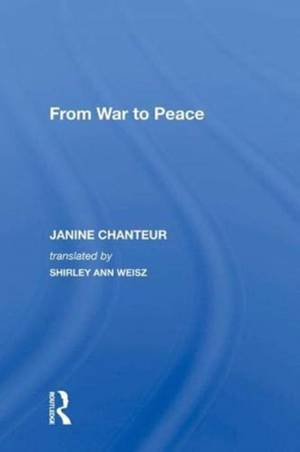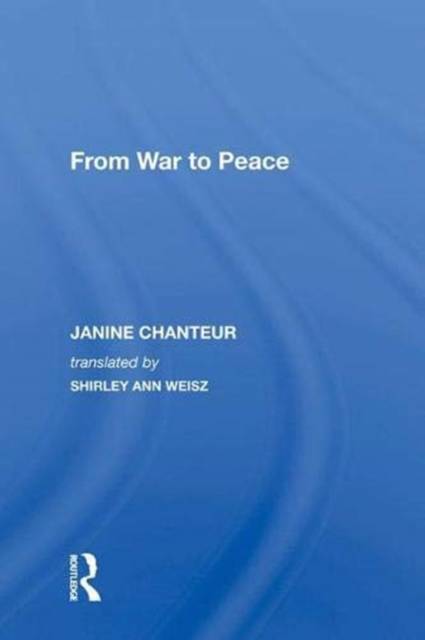
- Afhalen na 1 uur in een winkel met voorraad
- Gratis thuislevering in België vanaf € 30
- Ruim aanbod met 7 miljoen producten
- Afhalen na 1 uur in een winkel met voorraad
- Gratis thuislevering in België vanaf € 30
- Ruim aanbod met 7 miljoen producten
Omschrijving
What are the fundamental causes of war, and why does war seem so firmly rooted in human experience? After tracing the answers to these questions to biblical accounts of the genesis of the sexes and to Plato's conception of the united self, Professor Chanteur explores the failures of modern political theory to come to terms with the warlike nature of the human species. Examining the thought of Machiavelli, Hobbes, Hegel, Nietzsche, La Boétie, Rousseau, Kant, and Marx, she finds that while there is of course a strong tradition of deploring war, many have also seen it as inevitable or even useful. Ultimately, she argues, the hope for peace lies in rediscovering a neglected aspect of human ontology: Human beings are both men and women. It is the failed dialogue between these two aspects of the complete human species that leads to the fear and suspicion of the "other" that so typifies the warlike instinct. Combining political theory, gender analysis, and human psychology, From War to Peace constitutes a brilliant contribution to all these fields and is essential reading for scholars of war, peace, and human society.
Specificaties
Betrokkenen
- Auteur(s):
- Uitgeverij:
Inhoud
- Aantal bladzijden:
- 304
- Taal:
- Engels
Eigenschappen
- Productcode (EAN):
- 9780367004057
- Verschijningsdatum:
- 7/06/2019
- Uitvoering:
- Hardcover
- Formaat:
- Genaaid
- Afmetingen:
- 152 mm x 229 mm
- Gewicht:
- 719 g

Alleen bij Standaard Boekhandel
+ 391 punten op je klantenkaart van Standaard Boekhandel
Beoordelingen
We publiceren alleen reviews die voldoen aan de voorwaarden voor reviews. Bekijk onze voorwaarden voor reviews.










